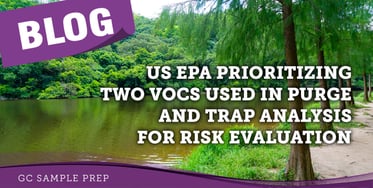 Late last year, the United States Environmental Protection Agency (EPA) announced it will be prioritizing five toxic chemicals for risk evaluation under the Toxic Substances Control Act. During this process, if the EPA designates these chemicals as High Priority Substances, they will undergo an extensive comprehensive study. These studies will be crucial to helping protect people from toxic exposure.
Late last year, the United States Environmental Protection Agency (EPA) announced it will be prioritizing five toxic chemicals for risk evaluation under the Toxic Substances Control Act. During this process, if the EPA designates these chemicals as High Priority Substances, they will undergo an extensive comprehensive study. These studies will be crucial to helping protect people from toxic exposure.
The five chemicals prioritized are: Acetaldehyde, Acrylonitrile, Benzenamine, 4,4’-Methylene bis(2-chloroaniline) (MBOCA), and Vinyl Chloride.
The EPA will consider all pathways of exposure to these toxic chemicals — air, water, drinking water, and soil. Acrylonitrile and Vinyl Chloride are both volatile organic compounds (VOCs) analyzed by Purge and Trap (P&T) by EPA methods 524.2, 524.3 and 524.4, 8260, and 624 for drinking water and wastewater.
Judith Enck, president of Beyond Plastics and a former EPA regional administrator, said, “Most vinyl chloride is used to make polyvinyl chloride (PVC) plastic, which poses significant health and environmental problems that have been known for over 50 years. This is one of the most important chemical review processes ever undertaken by the EPA. I applaud the EPA for launching this review.”
Prioritizing these five chemicals is just the first step under the EPA’s authority to regulate existing chemicals currently on the market or in use. Evaluating, sharing information, and providing a process to address these impacts of toxic chemicals, as needed, to workers, consumers, and communities will help provide health and environmental justice and protections.
The EPA will open a public comment period after publication of the Federal Register notice, wherein they will request further information on, but not limited to, how these chemicals are used and whether they affect overburdened communities or children and workers, and their known hazards and exposures. The EPA will continue to review and screen this submitted data to decide if these chemicals will be designated as high priority for risk evaluation.
What could this mean for your P&T analysis? At the federal, regional, and state level it could vary, but detection limits have only been lowered in the past. Therefore, it could require lower method detection limits and reporting limits, depending on the sample matrix.
For more information, click the button below.
